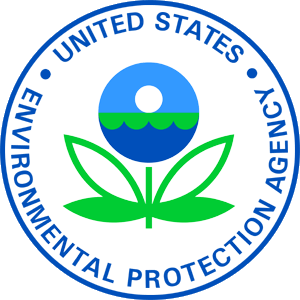EPA Launches New Initiative to Tackle PFAS, Identify Emerging Contaminants in Water
WASHINGTON – Today, November 20, the U.S. Environmental Protection Agency launched a new, no-cost technical assistance effort focused on reducing exposure to perfluoroalkyl and polyfluoroalkyl substances (PFAS) and other emerging contaminants in small or disadvantaged communities. This initiative is part of EPA’s Water Technical Assistance (WaterTA) program.
“The Bipartisan Infrastructure Law is providing a focused opportunity to help small and disadvantaged communities address PFAS and emerging contaminants to ensure that drinking water is clean and safe for residents,” said EPA Principal Deputy Assistant Administrator for Water Bruno Pigott. “By working hand-in-hand with local partners, the Tackling Emerging Contaminants initiative will help ensure that historically underserved areas have access to safer drinking water that is essential for healthy and vibrant communities.”
President Biden’s Bipartisan Infrastructure Law has provided an unprecedented $50 billion to improve water infrastructure across the nation. Of this funding, $5 billion is dedicated to the Emerging Contaminants in Small or Disadvantaged Communities (EC-SDC) grant program, which supports this latest technical-assistance initiative.
EPA’s free water technical assistance initiatives help communities identify their water challenges, develop plans, build capacity, and develop their application materials to access federal funding. The Tackling Emerging Contaminants initiative builds on EPA’s robust suite of technical assistance programs and includes diagnostic water quality sampling and analysis, source water assessment, preliminary treatment design and evaluations, operational and sampling training, and identifying solutions to address emerging contaminants and PFAS contamination including community engagement and outreach support.
In April 2024, EPA issued the PFAS National Primary Drinking Water Regulation to protect communities from exposure to harmful PFAS, also known as “forever chemicals.” Exposure to PFAS has been linked to adverse health impacts that include some cancers, liver and heart disease, and immune and developmental damage to infants and children.
NOTE: This press release was submitted to Urban Milwaukee and was not written by an Urban Milwaukee writer. While it is believed to be reliable, Urban Milwaukee does not guarantee its accuracy or completeness.
More about the PFAS Problem
- PFAS Levels in Great Lakes Fish Are Dropping - Danielle Kaeding - Feb 6th, 2026
- Gov. Evers and GOP Lawmakers Near a Deal on PFAS Pollution - Danielle Kaeding - Jan 22nd, 2026
- Gov. Evers Optimistic About Reaching Final Deal With Republican Lawmakers to Secure Release of $125 Million in Long-Awaited Pfas Investments - Gov. Tony Evers - Jan 21st, 2026
- Bipartisan Push to Tell Counties Faster When Water Tests Fail - Henry Redman - Dec 19th, 2025
- MKE County: County Seeks to Sue PFAS Producers, Oil Companies - Graham Kilmer - Dec 10th, 2025
- Wisconsin Reviewing EPA-Approved Pesticides For PFAS - Danielle Kaeding - Dec 9th, 2025
- State Nears Settlement with Johnson Controls/Tyco Over PFAS Spills - Danielle Kaeding - Dec 4th, 2025
- Senate Bill Promotes Soybean-Based Firefighting Foam to Replace PFAS - Danielle Kaeding - Dec 2nd, 2025
- Test Results Show High PFAS Levels in Wisconsin’s Landfill Runoff - Danielle Kaeding - Dec 2nd, 2025
- Wisconsin Communities Get $282 Million for Drinking Water Projects - Danielle Kaeding - Nov 19th, 2025
Read more about PFAS Problem here
Recent Press Releases by U.S. Environmental Protection Agency
EPA Announces $3 Billion in New Funding for States to Reduce Lead in Drinking Water
Nov 25th, 2025 by U.S. Environmental Protection AgencyAdditionally, $1.1 Billion of Unused Funding Redistributed for States
EPA Releases Draft Health-Based Recommendations for PFAS Levels in Bodies of Water
Dec 19th, 2024 by U.S. Environmental Protection AgencyCriteria can be used to inform water quality standards to protect people from exposure to PFAS





















